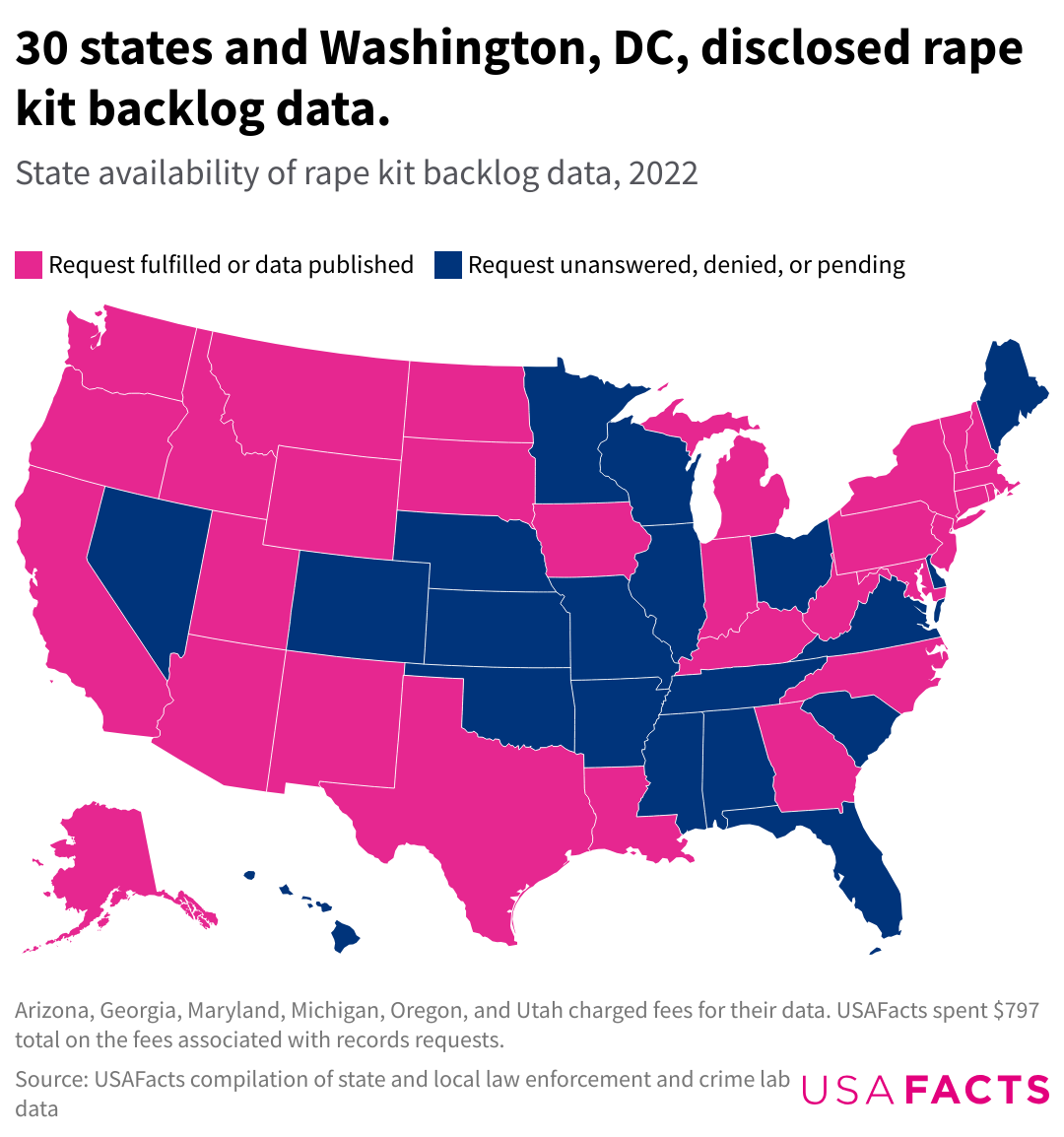Forensic Laboratories Are Struggling: Cases Backlog At Stake
Forensic science professionals, such as the ones working at the Connecticut Forensic Science Laboratory, play a critical role in analyzing evidence related to various cases. However, numerous state laboratories are experiencing significant backlog problems, which span a diverse set of cases such as DNA and ballistics analyses. Some communities are being heavily affected by these delays, leading to stalled court procedures and victims left hanging without closure. Crime labs at the state and local levels across the nation are struggling to manage the influx of evidence, including rape kits, drug samples, and blood vials, causing hurdles in forensic examinations and thus impacting the legal process.
Demand for forensic testing is on the rise, but the introduction of federal funding cuts could exacerbate the problem of delayed justice for victims, interfere with criminal investigations, and add further strain to the already overstretched systems. Alarmingly, two significant federal grant programs that provide crucial support to state and local forensic labs are at risk. One program might undergo substantial reductions, while the other faces underfunding leading to not meeting its authorized limit, despite the growing need.
The possibility of such cuts has raised concerns among forensic experts and directors of crime labs. They argue that some laboratories are heavily dependent on these federal grants to manage their ever-increasing workloads. According to Scott Hummel, the president of the American Society of Crime Laboratory Directors, such reductions would significantly impact those crime laboratories that are reliant on this funding for their day-to-day operations.
Further limiting these resources, Hummel warns, would result in an increase in backlogs and would inevitably force labs to make hard decisions regarding the order of priority for their casework. Labs often operate out of the public eye, yet they are critical to the workings of criminal investigations. They perform a collection of vital services, including DNA testing, drug sample analysis, ballistics matching, and validating evidence in a broad array of cases such as rape and gun homicides.
While the evidence they produce could aid in making arrests, it is also significant within the court proceedings, impacting the outcomes for victims, defendants, and legal professionals alike. Amidst the backdrop of advancing forensic technology, primarily digital evidence and DNA testing, demand continues to rise at a swift pace. However, there exists a gap between expectations and what the labs can actually deliver due to capacity constraints.
New state laws and additional testing mandates apply further pressure on these overworked labs. For example, alterations in drug legislation or more stringent drink-driving laws account for a rise in requests for toxicology and drug testing. Some states have also enlarged their mandatory evidence testing prerequisites, often unfortunately without supplying the necessary additional funding.
Testifying to this predicament, James Carroll, the crime laboratory director with the Los Angeles County Sheriff’s Department, highlights the need for policy makers to understand that the judicial system demands more, thus necessitate additional resources. Staff remuneration is another issue, with some analysts choosing the private sector for its higher pay scale and improved benefits. Training replacement analysts can take a substantial amount of time, hampering the process of staff replacement and retention.
Such pressures can lead to significant consequences, particularly when it falls onto the analysts. Lab directors and managers stress that overworked staff can present risks; it can lead to a compromise in terms of quality, eventually leading to dangerous situations such as made-up results. This could bring hundreds or even thousands of cases under scrutiny.
With the mounting delays in evidence analysis, some states and local governments are looking at how they manage and fund their crime labs. Colorado, for instance, is dealing with the aftermath of a significant DNA testing scandal and has passed new laws to set up a review panel and tackle the backlog. Shelby County in Tennessee is investing $1.5 million in establishing the region’s first local lab dedicated to rapid-DNA analysis, digital forensics, and weapons ballistics.
Attention is being brought to the backlog of forensic evidence, driven by the national effort to test sexual assault kits. But such initiatives could also create challenge when deciding what to test first. In Oregon, the director of the state police forensic science division, Brian Medlock, declared that the state lab has ceased DNA analysis for all property crime evidence while dealing with the sexual assault kit backlog, leaving 474 kits untested as of June.
The Tennessee Bureau of Investigation is following suit, shifting nonviolent cases down its list of priorities in its effort to clear the rape-kit backlog. But this delay in the analysis of evidence from nonviolent cases is a missed opportunity. Uploading DNA profiles from such cases to national databases like CODIS can facilitate early offender identification and a potential prevention of more severe crimes.
Proposed funding cuts pose a significant threat to the national forensic science grant program and could potentially exacerbate evidence backlogs. Under President Donald Trump’s proposed 2026 fiscal year budget, the Paul Coverdell Forensic Science Improvement Grants Program, which seeks to aid labs in replacing outdated equipment, training staff, and reducing case backlogs, faces a 71% cut from its previous $35 million to $10 million.
Another program, the Debbie Smith DNA Backlog Grant Program, which assists laboratories in processing backlogged evidence—especially sexual assault kits, and supports the expansion of the national DNA database, CODIS—would receive $120 million, significantly under the $151 million cap authorized by Congress in 2023. Both these propositions appear as part of the administration’s yearly discretionary budget request; they require finalization by the Congress by September 30.
Amidst these developments, Connecticut is being noticed nationally for its improved and steady performance. After initial setbacks, including the loss of accreditation and a 12,000 case backlog, Connecticut’s forensic lab has secured a perfect accreditation score for three years consecutively. Average turnaround times now stand at just 20 days across all disciplines, demonstrating an impressive recovery and a testament to the dedication and accuracy of the lab’s staff.



